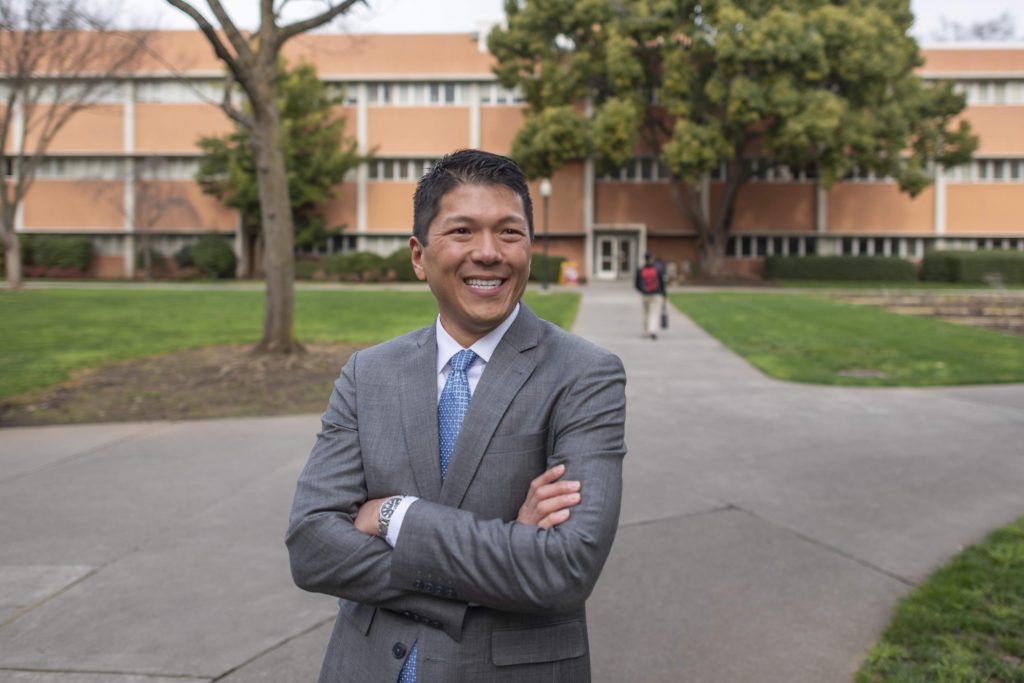Written By: Mary Herzog-Spanneut
Terence Lau’s expertise in business law and his passion for education converged years ago in Thailand while presenting to a group of visiting undergraduate students. That singular life-changing event was the culmination of years of practicing, studying, and communicating the law. The product of Terence’s experience as in-house counsel to Ford Motor Company, diligence in legal studies at Syracuse University College of Law, and participation in Moot Court and Syracuse Law Review was an articulate legal scholar. The university representative accompanying the students immediately offered Terence a teaching position. Terence embraced the opportunity to transition from lawyer to legal educator and modified the trajectory of his life.
After studying political science at Wright University, Terence attended Syracuse University College of Law. While in law school, Terence participated in Moot Court and was on two law journals, Syracuse Law Review and ABA The Labor Lawyer. The skills and experience gained in those organizations have been invaluable. In fact, the research and editing skills from the journals prepared Terence for one of his proudest professional accomplishments, serving as Editor-in-Chief of American Business Law Journal. Terence credited his experience on Syracuse Law Review in laying the groundwork for that undertaking.
In the summer after his 2L year, Terence interned at Ford Motor Company (“Ford”). Ford offered him a job upon completion of law school and Terence accepted. As in-house counsel to Ford, Terence was thrilled to have one client which meant he did not have to worry about billable hours. Terence specialized in international trade and transactions and served as the Director of Ford’s Association of Southeast Asian Nations Governmental Affairs in Thailand.
While in Thailand, he delivered the inspiring lecture to undergraduate students from the University of Dayton. Terence rejected the first offer to teach at the University of Dayton. However, the recruiter persisted and invited Terence to visit the campus. Terence contemplated the significant salary cut for an untenured teaching position in order to pursue his passion. By the end of the campus visit, Terence accepted the position of Professor of Business Law. Throughout the years, the university promoted Terence to administrative and leadership roles including Associate Dean for Undergraduate Program.
In 2018, Terence joined the State University of California at Chico as the Dean of the College of Business. The scope of Terence’s work in higher education differs from his work as an attorney. Yet, Terence utilizes many of the same critical thinking skills such as crafting and constructing arguments, researching, and writing. Terence is grateful to have attended Syracuse University where he was able to cultivate those skills. Terence stated that SU has been the center of everything good in his life.
Terence chose to attend Syracuse because he was offered a full scholarship. He personally understands the impact of philanthropy on an individual student’s life. One way that Terence has committed to giving back is by serving on the Board of Advisors for Syracuse University College of Law.
The dedication and success of Terence as a legal educator and scholar was recognized in 2006. He was selected to serve as a United States Supreme Court Fellow at the Supreme Court of the United States. Terence assisted Chief Justice Roberts with policy, administrative, and ceremonial duties. That experience was another highlight of his professional life.
Terence offers three pieces of advice for those starting their first legal job. First, try to “think about ways to make your boss’s life easier.” You can accomplish this by anticipating and voluntarily completing tasks on a joint project. Second, “listen rather than talk” to the experienced people in the office. Law is an art that takes time to master. Third, “do not hesitate to pursue your passion so that you do it well, and so you do not quit.”
Terence pursued his passion as a legal educator and scholar and seized an opportunity. The opportunity was not simply fortuitous but was the fruit of the skills and talent that Terence developed in his legal studies and legal practice.
